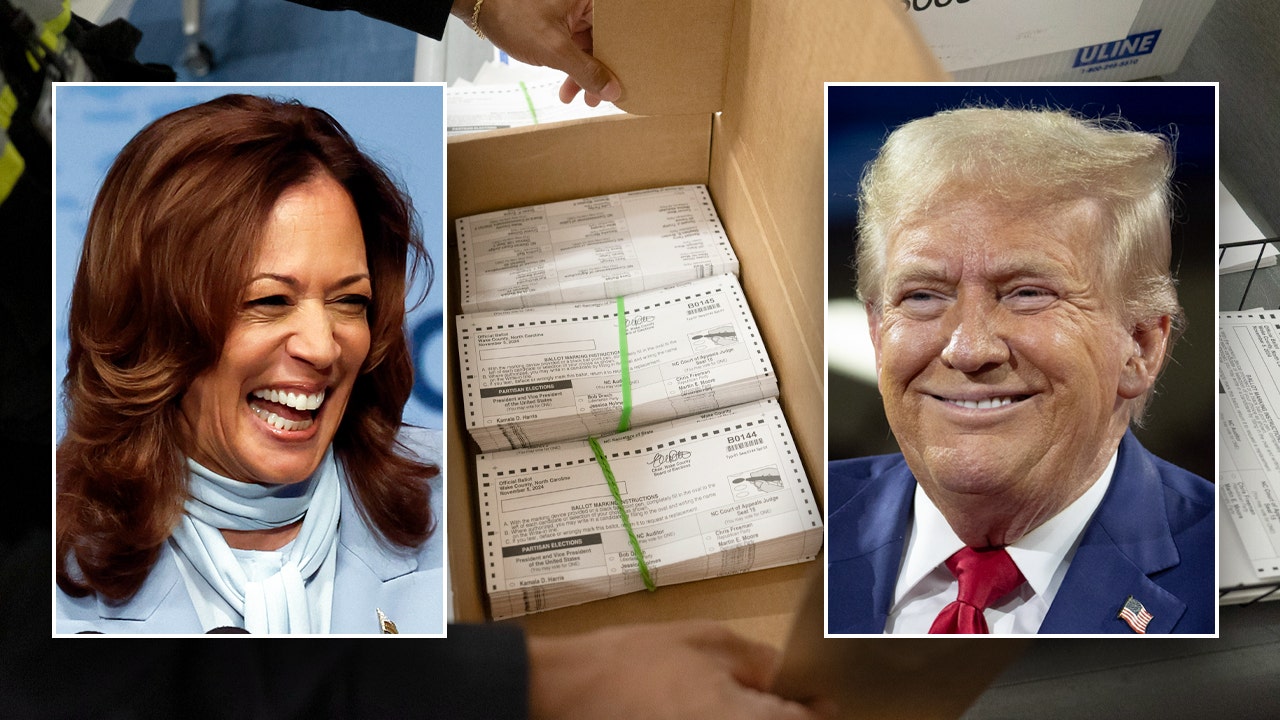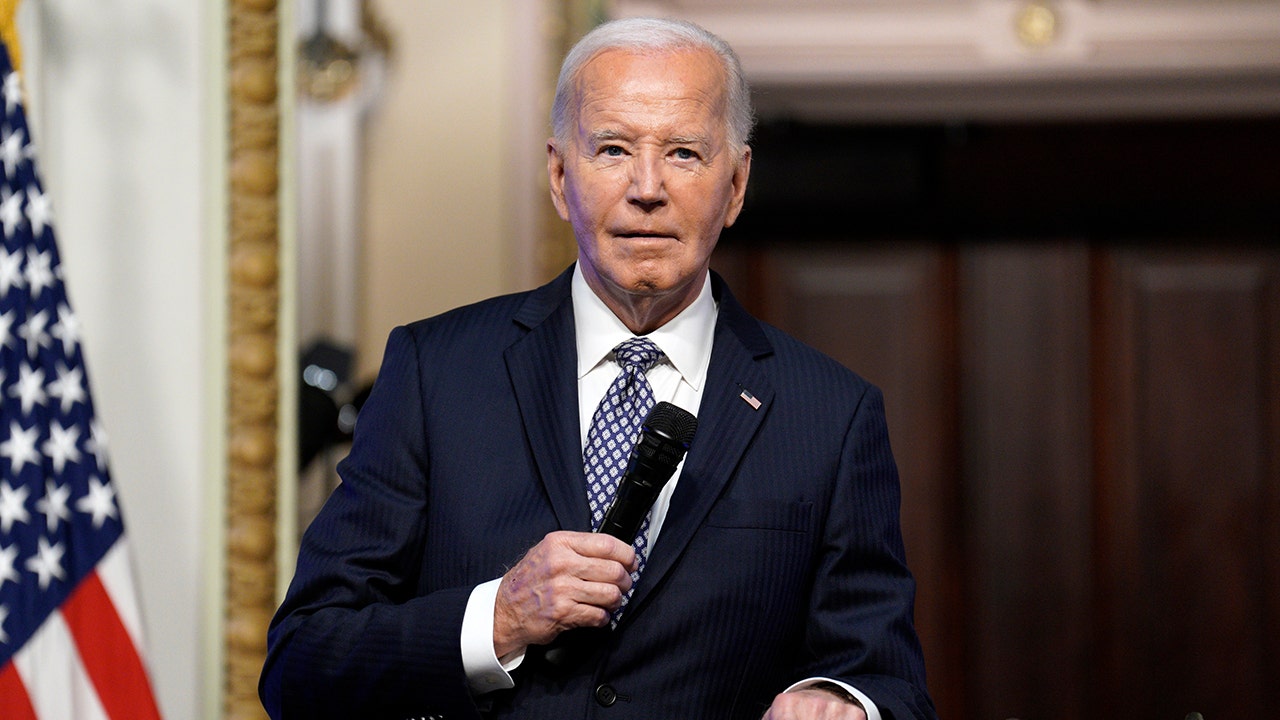The White House is finalizing plans for a U.S.-Mexico border clampdown that would shut off asylum requests and automatically deny entrance to migrants once the number of people encountered by American border officials exceeded a new daily threshold, with President Joe Biden expected to sign an executive order as early as Tuesday, according to four people familiar with the matter.
The president has been weighing additional executive action since the collapse of a bipartisan border bill earlier this year. The number of illegal crossings at the U.S.-Mexico border has declined for months, partly because of a stepped-up effort by Mexico. Still, immigration remains a top concern heading into the U.S. presidential election in November and Republicans are eager to hammer Biden on the issue.
WHITE HOUSE WEIGHS IN ON ANTICIPATED TRUMP TRIAL VERDICT: ‘IMPORTANT DAY’
The Democratic administration’s effort would aim to head off any potential spike in crossings that could occur later in the year, as the fall election draws closer, when the weather cools and numbers tend to rise, two of the people. They were not authorized to speak publicly about the ongoing discussions and spoke to The Associated Press on condition of anonymity.
President Joe Biden speaks during a campaign event at Girard College, Wednesday, May 29, 2024, in Philadelphia. (AP Photo/Evan Vucci)
The move would allow Biden, whose administration has taken smaller steps in recent weeks to discourage migration and speed up asylum processing, to say he has done all he can do to control the border numbers without help from Congress.
The talks were still fluid and the people stressed that no final decisions had been made.
The restrictions being considered are an aggressive attempt to ease the nation’s overwhelmed asylum system, along with a new effort to speed up the cases of migrants already in America and another meant to quicken processing for migrants with criminal records or those who would otherwise be eventually deemed ineligible for asylum in the United States.
The people told the AP that the administration was weighing some of the policies directly from a stalled bipartisan Senate border deal, including capping the number of encounters at an average of 4,000 per day over a week and whether that limit would include asylum-seekers coming to the border with appointments through U.S. Customs and Border Protection’s CBP One app. Right now, there are roughly 1,450 such appointments per day.
Two of the people said one option is that migrants who arrive after the border reaches a certain threshold could be removed automatically in a process similar to deportation and would not be able to return easily. Migrants were able to more easily return to the border if they were expelled under the pandemic-era policy known as Title 42. Under that arrangement, Mexico agreed to take back some non-Mexican nationalities, including migrants from Guatemala, Honduras and El Salvador.
Migrants, especially families, claiming asylum at the southern border are generally released into the U.S. to wait out their cases. But there are more than 2 million pending immigration court cases, and some people wait years for a court date while they live in limbo in the U.S.
Anyone can ask for asylum regardless of whether they arrive illegally at the border, but U.S. officials are increasingly pushing migrants to make appointments, use a legal pathway that avoids the costly and dangerous journey, or stay where they are and apply through outposts in Colombia, Guatemala and Costa Rica.
The Biden administration has grown ever more conservative on border issues as the president faces ceaseless criticism from Republicans and there are large numbers of migrants crossing into the U.S. from Mexico who are not easily returned, especially as global displacement grows from war, climate change and more.
The immigration authority that the administration has been looking to use is outlined in Section 212(f) of the Immigration and Nationality Act. It gives a president broad leeway to block entry of certain immigrants into the U.S. if it would be “detrimental” to the U.S. national interest.
Senate Republicans last week again blocked a bill that would have enshrined some of the same efforts into law. The vote was meant to underscore GOP resistance to the proposal even as Republicans have clamored for more restrictions and argued that Biden has not done enough to stem the flow of migrants entering into the U.S.
The bipartisan bill had been negotiated for months and appeared, for a moment anyway, to be heading toward passage. It was even endorsed by the National Border Patrol Council and its president Brandon Judd, an avowed supporter of Donald Trump, the presumptive Republican presidential nominee. But Trump, concerned about handing Democrats an election-year win, called on Republicans to tank it, and they did.
White House officials did not confirm the expected executive order.
White House spokesman Angelo Fernández Hernández said the administration “continues to explore a series of policy options and we remain committed to taking action to address our broken immigration system.”
“While congressional Republicans chose to stand in the way of additional border enforcement, President Biden will not stop fighting to deliver the resources that border and immigration personnel need to secure our border,” he said.
Congress this year approved funding for a total of 41,500 detention beds and increased money for immigration enforcement and removal operations by $1.2 billion over what the White House had initially requested. That included $106 million in more funding for programs that monitor immigrants in the asylum system through phone apps and ankle bracelets, rather than through detention.
Those increases, negotiated after the collapse of the bipartisan deal, could pave the way for the administration to ratchet up immigration enforcement.
Yet unlike legislative action that is binding, anything Biden does through executive action can be challenged in the courts, and will almost certainly be, so it not clear whether — or if — the clampdown on asylum would begin. The administration was weighing other actions too, including faster and tougher enforcement of the asylum process.
The administration has generally paired proposed crackdowns with an expansion of legal paths elsewhere and was also planning to do so in the future, but not at the same time the new restrictions were announced, the people said.




